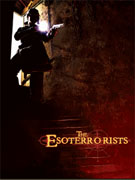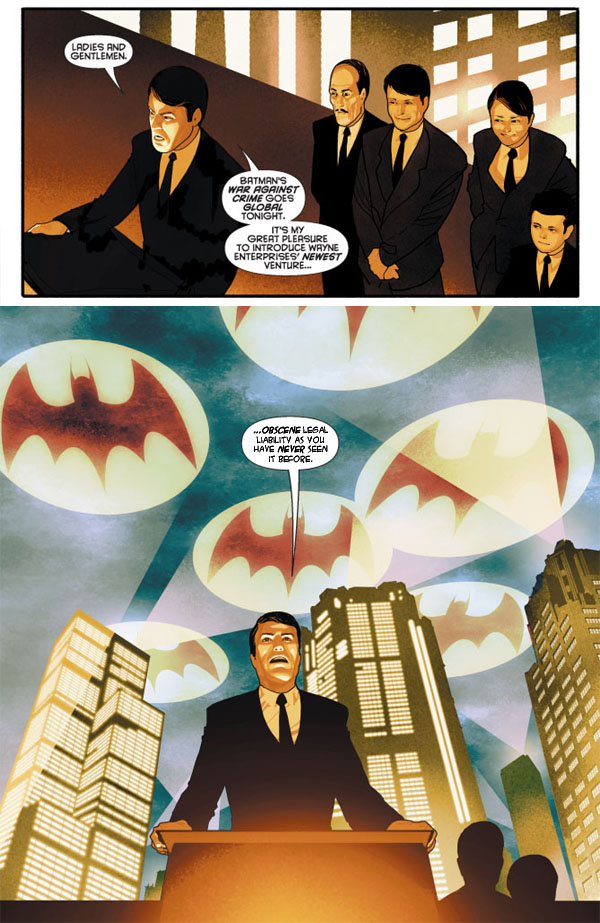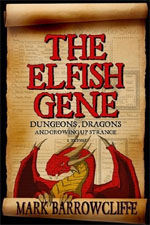One of my long-standing concerns with the D20 system was the skewed probabilities of opposed group checks. For example, consider the example of a PC making a Move Silently check opposed by an NPC’s Listen check where both characters have the same skill modifier. In this scenario, a single PC attempting to sneak past a single NPC has a 50% chance of succeeding.
Compare this to a situation in which 5 PCs are attempting to sneak past 5 NPCs (with, again, all of the characters involved having the same skill modifiers). This effectively becomes a check in which the 5 PCs are rolling 5d20 and keeping the lowest result, while the NPCs trying to detect them are rolling 5d20 and keeping the highest result.
The average roll of 5d20-keep-lowest is 3. The average of 5d20-keep-highest is 17. That 14 point differential means that it’s virtually impossible for a party of characters to sneak past a group of evenly matched opponents. (And even sneaking past a single watchman is difficult as the average party roll of 3 is opposed by an average roll of 10.)
Of course, the odds are actually worse than this: A successful stealth attempt will also usually require a Hide vs. Spot check, so you need to succeed at not one but two checks at these outrageous odds. And this assumes that the PCs all keep their stealth skills maxed out (which in practice they won’t, particularly since it’s so pointless to do so).
The argument can certainly be made that this is realistic in some sense: A large group should have a tougher time sneaking past a sentry than one guy and more eyes means more people who can spot you. But I would argue that the probability skew is large enough that it creates results which are both unrealistic and undesirable.
In practice, the effects of the skew are obvious: Group stealth attempts quickly drop out of the game. When stealth is called for, it takes the form of a sole scout pushing out ahead of the rest of the group. And when the scout becomes too fragile to survive when the check finally fails, stealth stops being a part of the game altogether.
Since I’d prefer stealth to be a potentially viable tactic, a solution is called for.
QUICKIE SOLUTIONS
DISTANCE / DISTRACTION PENALTIES: A guideline that can really help the stealther is the -1 penalty per 10 feet that is supposed to be applied on Listen and Spot checks. Keep about a hundred feet away from the guy trying to spot you and you can quickly cancel out the probability skew of the dice.
Unfortunately, these modifiers become kind of wonky, particularly when it comes to Spot checks. On the open plains, for example, the “maximum distance at which a Spot check for detecting the nearby presence of others can succeed is 6d6 x 40 feet”. The minimum distance of 240 feet, therefore, is supposed to impose a -24 penalty and the maximum distance of 1,440 feet impose a -144 penalty.
I’ve tried a few different ways of fixing these modifiers, but am currently just using an ad hoc sense of what the range of the check is.
TARGET NUMBERS: Instead of making these opposed checks, set a target number for the PC’s skill check of 10 + the NPC’s skill modifier. (This essentially halves the probabilty skew.)
GROUP CHECKS: Make only one check for each group. But what skill modifier to use? Using the average value is cutesy, but impractical at the game table. Using the lowest value still effectively takes group stealth off the table. Using the highest modifier means that everyone except the rogue ignores the stealth skills entirely and also creates issues with determining surprise.
And how big can a group be? One guy with a decent Hide check shouldn’t be able to sneak an army of ten thousand soldiers under the nose of a watchtower, but where do you draw the line?
Maybe you could limit the number of people covered by a check to equal the skill leader’s skill ranks? Or impose a -2 penalty per person in the group?
COMBINE STEALTH / PERCEPTION SKILLS: I’ve been folding Hide/Move Silently into a Stealth skill and Listen/Spot into a single Perception skill intermittently since 2002, so I wasn’t particularly surprised when both Pathfinder and 4th Edition went in the same direction. It cuts down on dice rolls and eliminates the undesireable “need to succeed twice” feature of stealth checks.
This does create some interesting oddities around trying to resolve invisibility, and while I haven’t found the perfectly elegant solution yet, this slight corner case is (in my experience) preferable to the constantly degrading effects of splitting the skills.
Using some combination of these solutions tends to mitigate the problem, but I’ve generally been unsatisfied with the hodgepodge fashion of it all. So taking my unified Stealth and Perception skills in hand, I’ve been looking for a more elegant solution.
GUMSHOE’S PIGGYBACKING
 I found the roots of what I think may prove a usable mechanic in the GUMSHOE system:
I found the roots of what I think may prove a usable mechanic in the GUMSHOE system:
When a group of characters act in concert to perform a task together, they designate one to take the lead. That character makes a simple test, spending any number of his own pool points toward the task, as usual. All other characters pay 1 point from their relevant pools in order to gain the benefits of the leader’s action. These points are not added to the leader’s die result. For every character who is unable to pay this piggybacking cost, either because he lacks pool points or does not have the ability at all, the Difficulty Number of the attempt increases by 2.
Obviously the point-spending mechanics which underlie the GUMSHOE system can’t be translated directly into the D20 system, but the basic structure of a lead character making a check onto which others could “piggyback” was inspiring.
D20 PIGGYBACKING
When the whole group needs to perform a single task collectively (like sneaking past a guard or using group-climbing techniques to scale a cliff) they can make a piggybacking skill check.
(1) One character takes the lead on the check. This character makes the skill check using their normal skill modifier, just like any other skill check.
(2) Other characters can “piggyback” on the lead character’s check by succeeding on a skill check. The Piggyback DC of the check is equal to half its normal DC. (So if the leader is making a DC 30 check, the other characters must make a DC 15 check to piggyback on the check result.)
(3) The lead character can reduce the Piggyback DC by 1 for every -2 penalty they accept on their check. (They must make this decision before making the check.)
(4) The decision to piggyback on the check must be made before the leader’s check is made.
OPPOSED PIGGYBACKING CHECKS: The DC of the check is set by the lead character’s check. Just like any other piggybacking check, only characters who succeed on the piggybacking check benefit.
(To simplify the resolution, you can start by rolling only the lead characters’ checks. After you’ve determined which lead character succeeded, you can call for the necessary piggybacking checks. Anyone piggybacking on the failed check, of course, will fail no matter what their piggybacking check would have been.)















